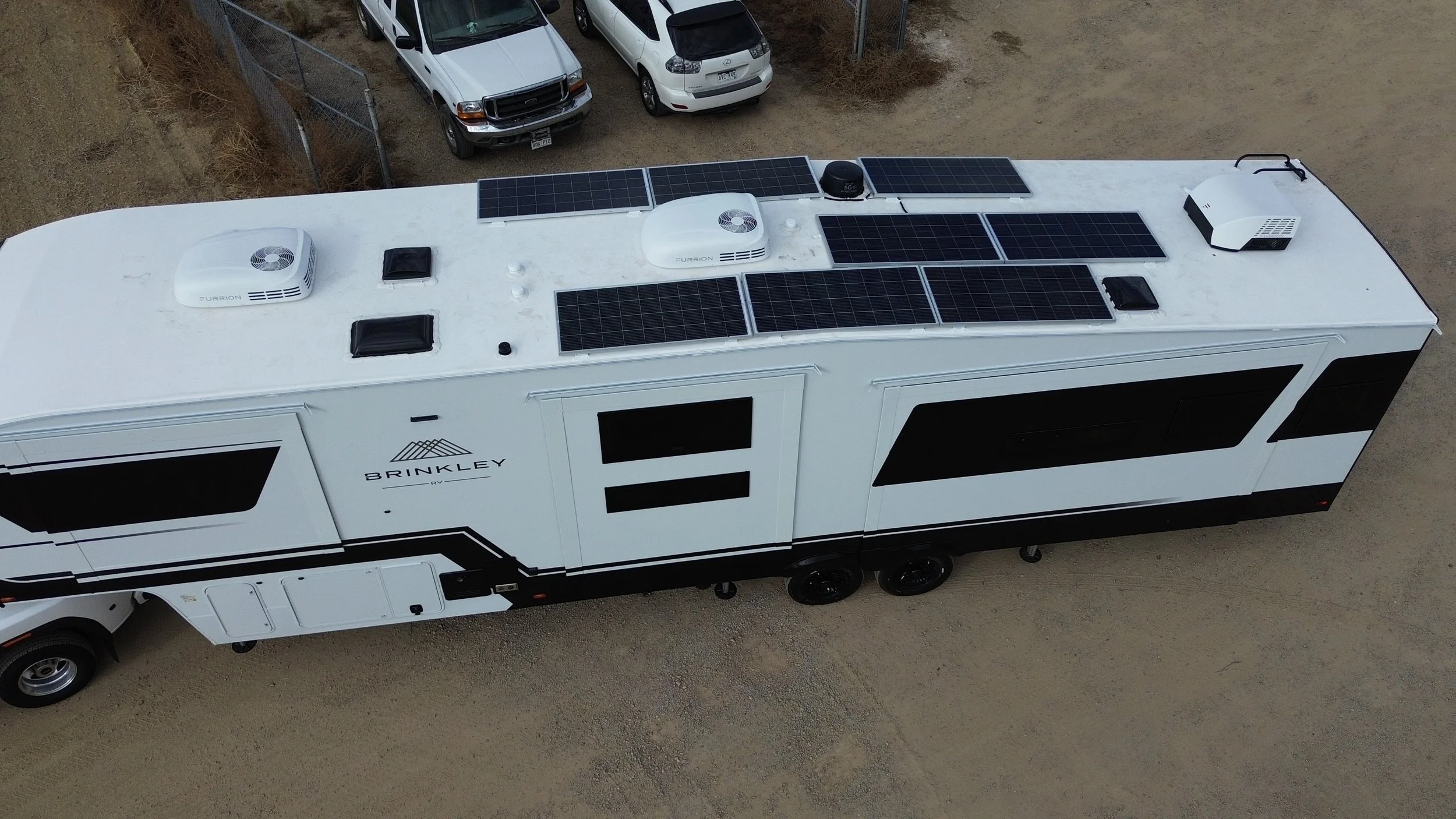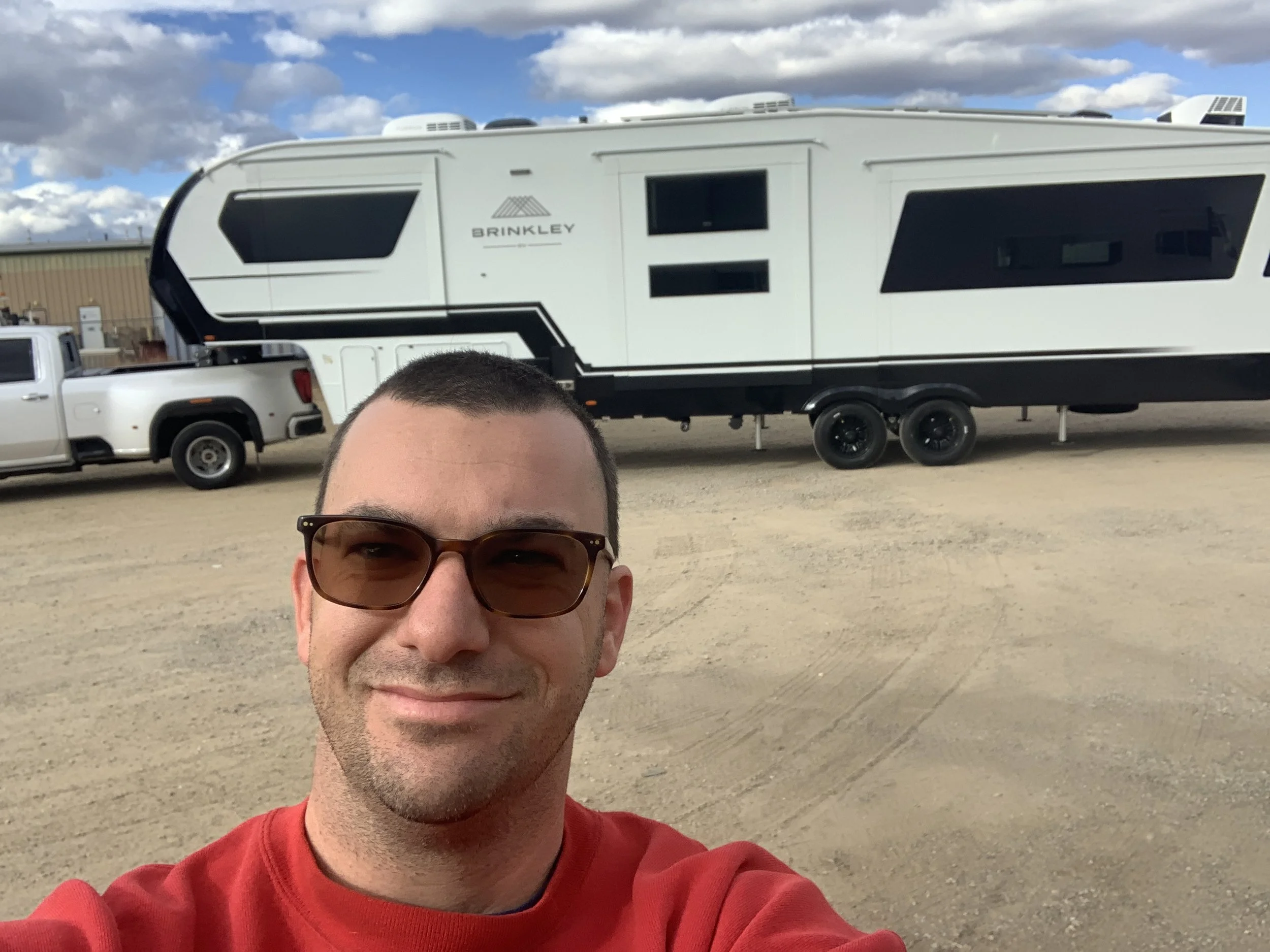Everything RV Owners Need to Know About The Solar Investment Tax Credit
Because of the Inflation Reduction Act signed into law in 2022, RV owners can now get 30% of the price of a solar system returned as a credit on their taxes when they invest in a system to help them escape the crowded campgrounds.
Last year, lawmakers raised the ITC (Investment Tax Credit) to 30% on solar systems, up from 26% the previous year. This means that anyone who installs a solar system on their primary or secondary residence can claim 30% of the cost of their system off their total tax liability.
RVs can qualify as primary or secondary residences on your taxes. If you’re an RV owner and use it more than 14 days a year, it’s a secondary residence. If you live in it full-time, it’s a primary residence.
This is great news for RV owners looking to break free from the crowds. This article reviews everything you need to know about the Solar Investment Tax Credit including who is eligible, the expenses included, benefits, and how to claim your credit.
One of our favorite recent installs
Who's Eligible for The ITC?
Let’s first find out if you’re eligible for the solar energy investment tax credit. To qualify, your solar photovoltaic (PV) system must meet these conditions:
The system must be installed in the United States between January 1, 2017, and December 31, 2034.
The solar PV system must be installed on your primary or secondary residence in the United States (this includes RVs!)
You own the solar PV system (meaning you bought it with cash or through financing).
The solar PV system is either new or being used for the first time. The credit is only for the initial installation and first use of the solar equipment. Used equipment doesn’t count. It cannot be reused or salvaged. The credit can only be claimed on the "original installation" of the solar equipment.
We recommend consulting a tax professional or accountant familiar with renewable energy tax initiatives and regulations to confirm whether or not you qualify.
What Expenses are Included?
Certain expenses related to your RV solar system are eligible for the credit, including:
Solar photovoltaic (PV) panels or PV cells.
Contractor labor expenses for on-site preparation, assembly, or original installation
Permitting fees, inspection costs, and developer fees.
Balance-of-system components, encompassing wiring, inverters, and mounting equipment.
Energy storage devices with a capacity rating of 3 kilowatt-hours (kWh) or more (for systems installed after December 31, 2022).
Sales taxes incurred on eligible expenses.
Essentially, if you buy a solar panel system, you can claim back 30% of the total cost of your taxes the following year, including the cost of the installation.
These are expenses that are excluded from the credit:
RVs used primarily for business or investment purposes (such as rental RVs) may not qualify for the residential ITC.
Battery storage systems are eligible for separate incentives but they are not specifically included in the ITC for RV solar installations unless they are directly part of the solar energy system.
Understand the cost inclusions and exclusions before claiming the credit. Your solar installer should also be able to advise you on what costs are covered.
Benefits for American RV Owners
For American RV owners interested in solar, the extension of the ITC offers several benefits:
Freedom
Solar power systems generate electricity from the sun, reducing RV owners' dependence on RV parks. You are free to boondock in remote locations as much as you wish. You don’t have to rely on external power sources.
At Solar Power My RV, we’ve heard past customers say they were paying $2,000 a month just for the patch of dirt and plug at the RV park. A solar system frees RV owners from that fate, allowing them to live the RV lifestyle anywhere, without compromising electricity usage.
Cost Savings
The 30% Federal Investment Tax Credit reduces the overall solar system installation cost, providing homeowners with significant financial savings. This solar energy investment tax credit can make solar energy more affordable for a broader range of RV owners.
Once a solar system is installed on an RV, given current RV park rates, it will pay for itself in 1-3 years if the owner is using the system to live off-grid. The more you avoid crowded campgrounds, the more you save.
Environmental Impact
Utilizing solar energy reduces the carbon footprint associated with RV travel by using a clean and renewable energy source. You can directly contribute to conservation efforts by minimizing emissions.
Increased Resale Value
If you ever decide to sell your RV, you will likely be able to sell it for more. Solar-equipped RVs are increasingly sought after in the market due to their energy efficiency and sustainability features.
How to Claim Your Solar Investment Tax Credit
Important note: It's best to consult with your tax professional before attempting to claim the ITC. Everyone’s situation is different.
To get the tax credit after installing their system, RV owners can use IRS Form 5695 when filing taxes. After you submit this form, the credit will be applied in the tax filing season following the year your system was installed and finished. For example, if your solar project is completed in May 2023, you'll receive your tax credit around April 2024.
Take Advantage of the Solar Investment Tax Credit
The Inflation Reduction Act's extension and enhancement of the Investment Tax Credit (ITC) are pivotal for American RV owners considering solar installation. These changes provide:
An exceptional financial incentive: Claiming back 30% of your total system cost on your taxes means more money in your pocket. If you buy your system outright, your solar system will pay for itself 30% faster. If you finance your system, you’ll still claim 30% of the total system cost as a tax credit in your next tax year. Either way, the 30% credit offers you significant savings on your system.
A more extended timeframe: The ITC was set to expire in 2023, but the Inflation Reduction Act extended it until 2032. Homeowners (and RV owners!) interested in going solar have a much longer timeframe to claim a higher incentive.
Be sure to consult with a qualified solar installation provider and a tax professional to maximize the benefits of the ITC and make an informed decision regarding your residential solar project.
Solar Power My RV has a 6-year track record and more than 60 five-star reviews. When researching a solar system, you need good information, an honest evaluation of the economics and feasibility of your unique RV, and a helping hand to guide you on your solar journey. As your RV solar experts, we’re here to provide that and more. Contact us for a free estimate to install solar on your RV.
Once you've accepted your quote and set an appointment, just drop off your rig and we’ll take it from there. Your solar powered RV will be ready in three days or less, and you'll hit the road more free than ever.


